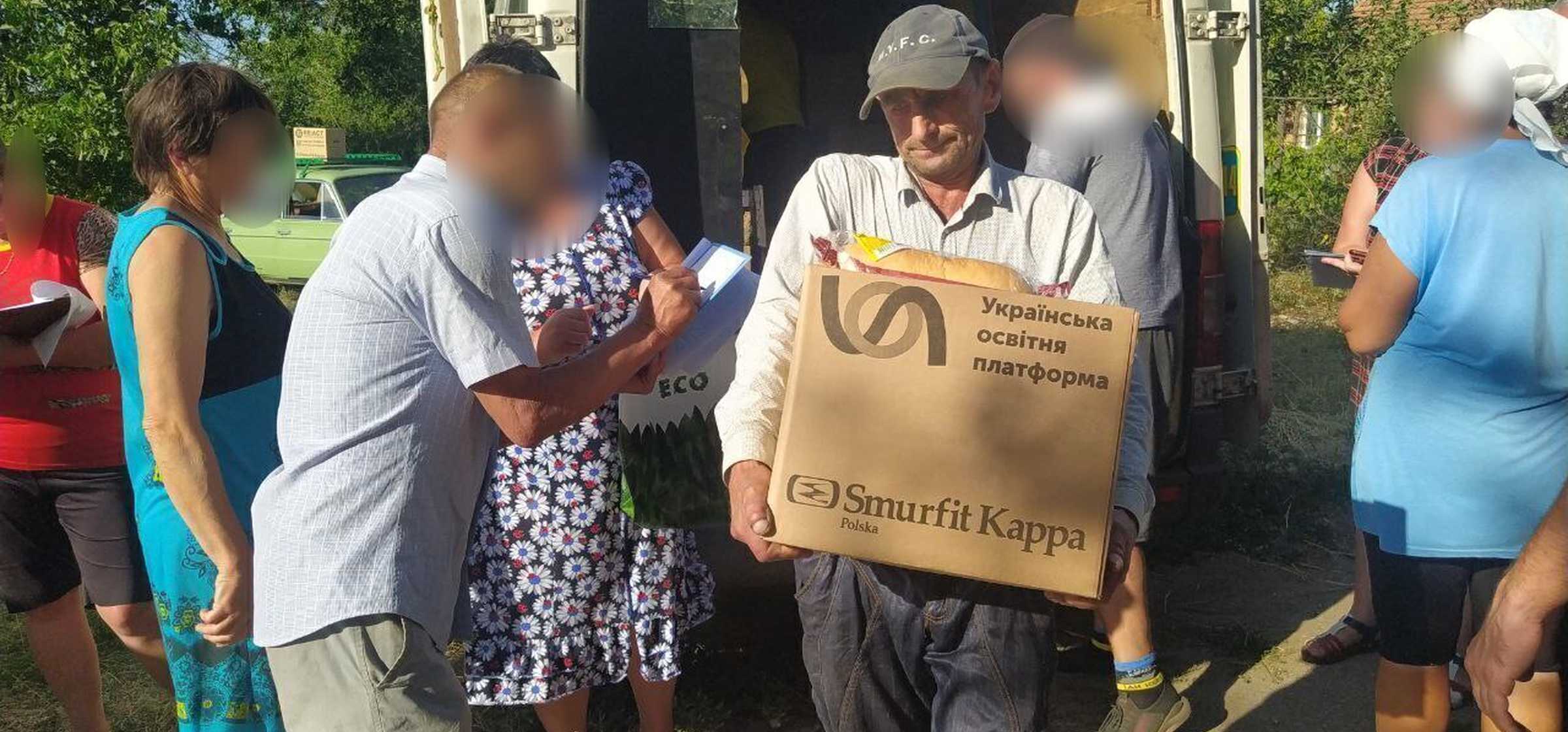The Journey of Family Food Packs: How we are feeding those in the hardest-to-reach areas of Ukraine
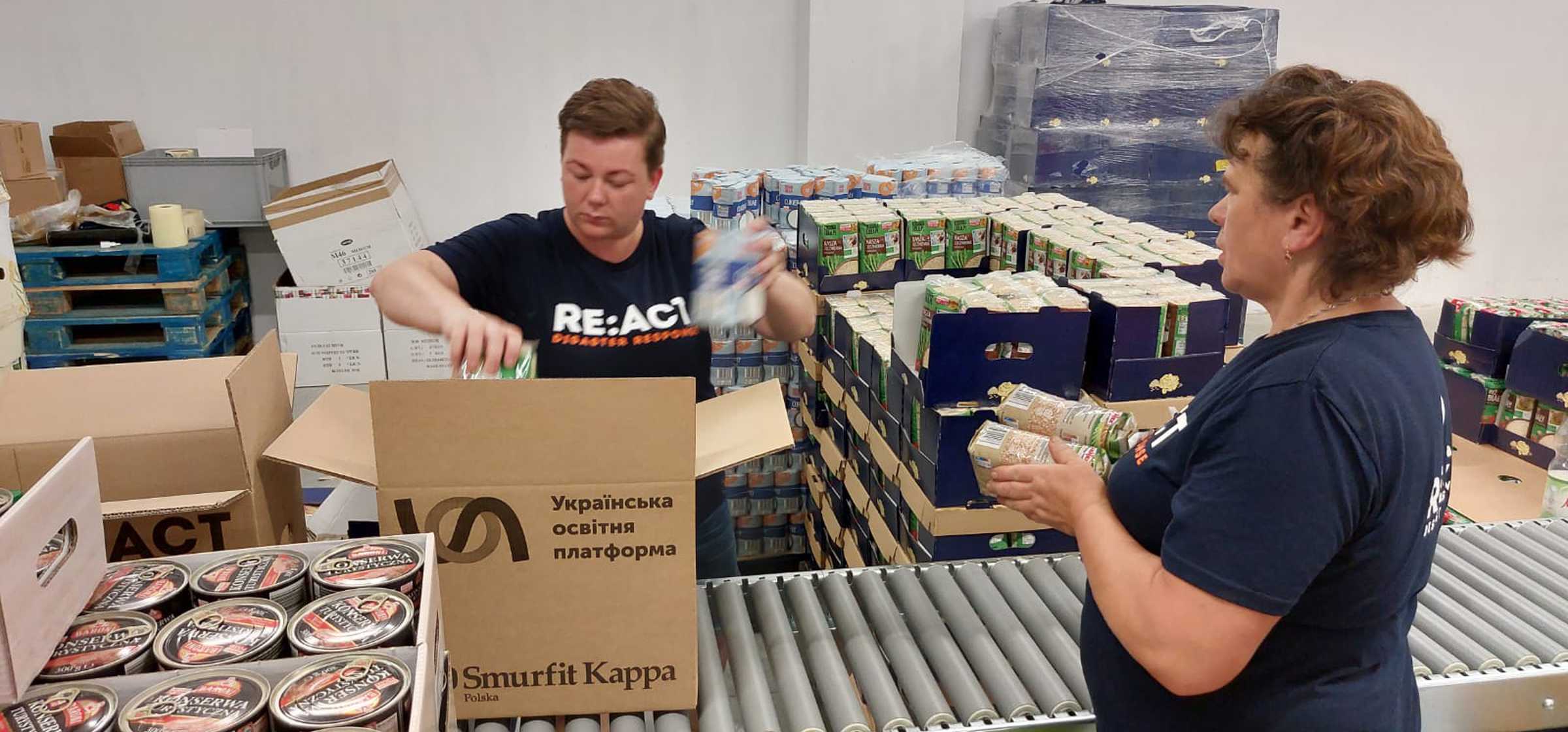
Posted by Alice Chick 16th August 2022 News
Estimated Reading Time: 3 mins
Throughout August, RE:ACT continues to provide family food packs to those living amidst the conflict in Ukraine. So far, we have been able to access some of the hardest-to-reach areas including Berdyansk and Prymorsk (read more here), areas which even the UN have found challenging to deliver aid to. So, how are we able to reach these areas and what journey do the food packs take, to get there?
When the conflict in Ukraine first began, RE:ACT prepared to assess the situation and potentially deploy to provide support to those affected.
International Operations Manager Paul Taylor and Volunteer Responder Gordon Mackenzie deployed to Romania to carry out an assessment of the situation and understand the humanitarian need. The people in need are of paramount importance and accurately understanding the challenges they are facing and the needs they have is key to an effective humanitarian response. During their trip, it became clear to Paul and Gordon that many people were facing extreme food shortages due to the effects of the conflict on the supply chains.
Work began on getting the family food packs operation underway. Any operation of this type requires an element of careful but efficient planning to make sure we can respond as swiftly as possible, whilst keeping our volunteers safe. Careful consideration had to be given to locations, volunteers, premises for the production line, supplies, and the boxes themselves.
Partnerships play a huge role in this operation. We would not be able to safely deliver the food packs without our partners, the Ukrainian Education Platform (UEP). Their local knowledge of the area, the language, and the culture strengthens our approach and provides a more robust humanitarian response.
Two RE:ACT volunteers were soon deployed to Poland, where they worked hard together with UEP volunteers to establish a production line. This includes sorting through locally sourced food supplies and putting together the cardboard boxes used to transport the food to civilians in need. The boxes, kindly donated by Smurfit Kappa, were specifically designed to be compact, allowing the aid to be delivered discreetly.
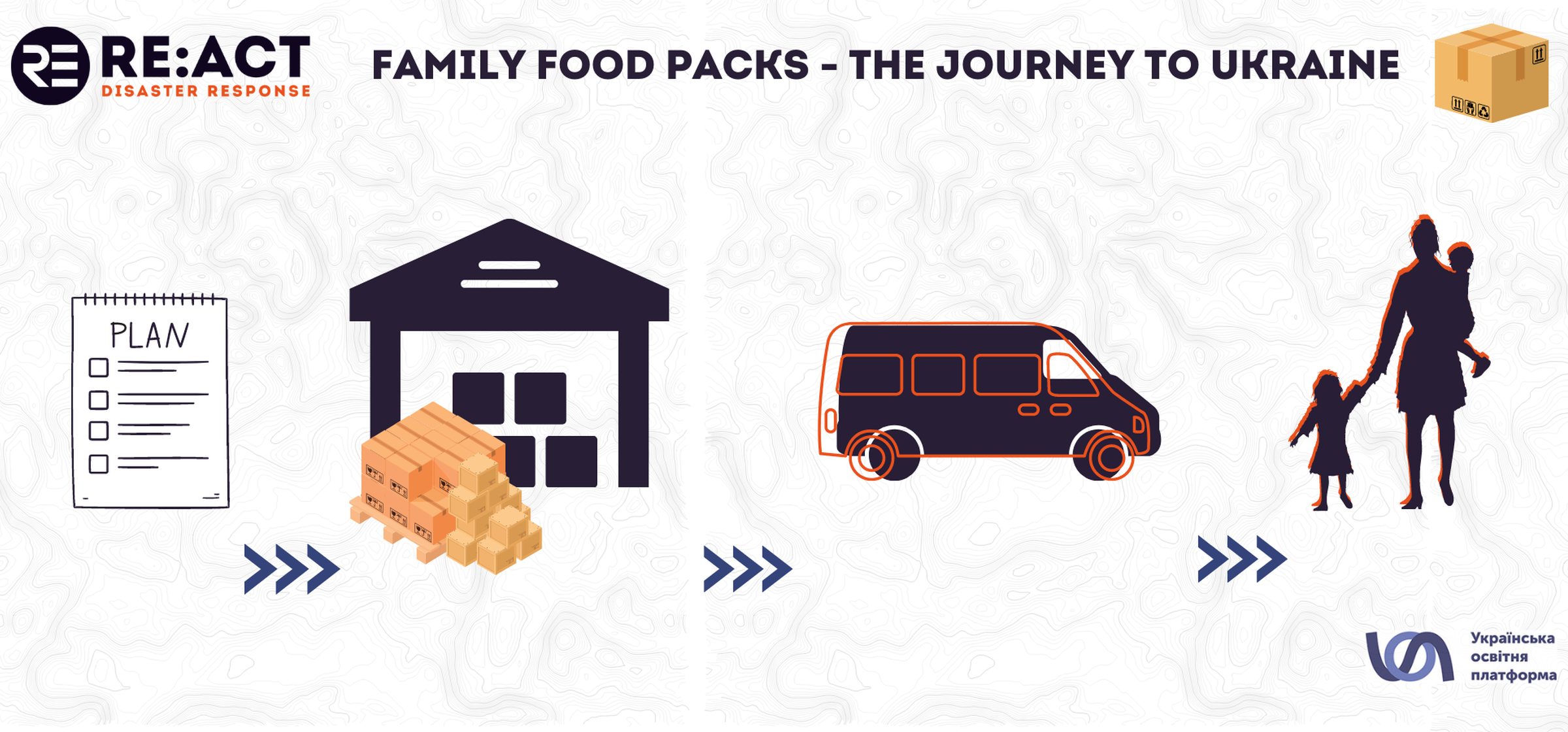
With a target of 1,000 food boxes per week to be sent to Eastern Ukraine, volunteers were able to get the production line established and prepare 1,000 food boxes within a couple of days.
Last week, the 5,000th food box came off the production line, with an aim of distributing 8,000 boxes by the end of August.
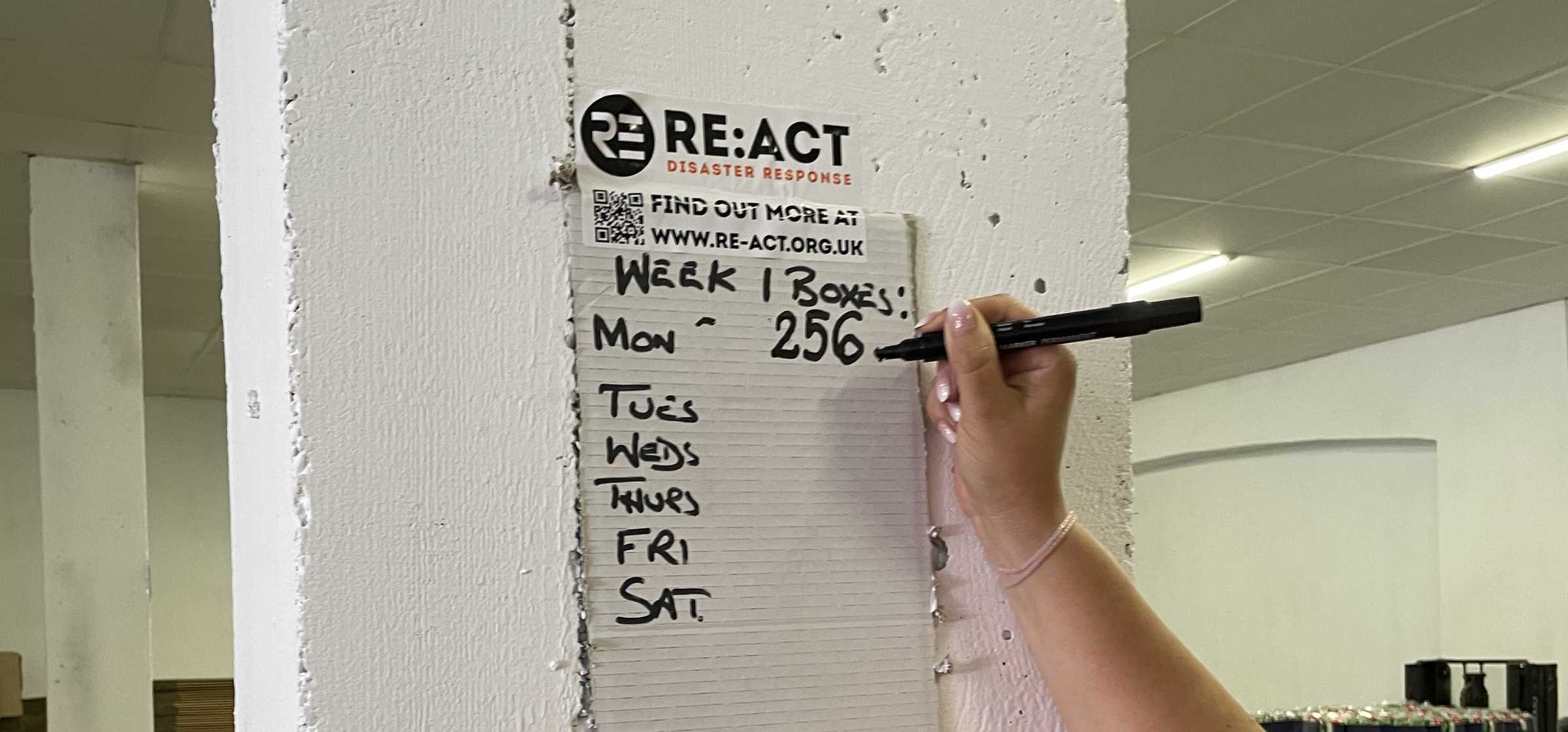
Once the food boxes are assembled and ready to go, volunteers transport these from the warehouse in Poland, across the border into Lviv, in Western Ukraine. From here, the boxes are sorted into smaller distribution piles to allow them to be transported across the country to Eastern Ukraine in a range of smaller vehicles.
To enable volunteers to reach those in the most difficult of areas, particularly those within Russian-occupied territory, it is vital that distribution is discreet and carefully planned.
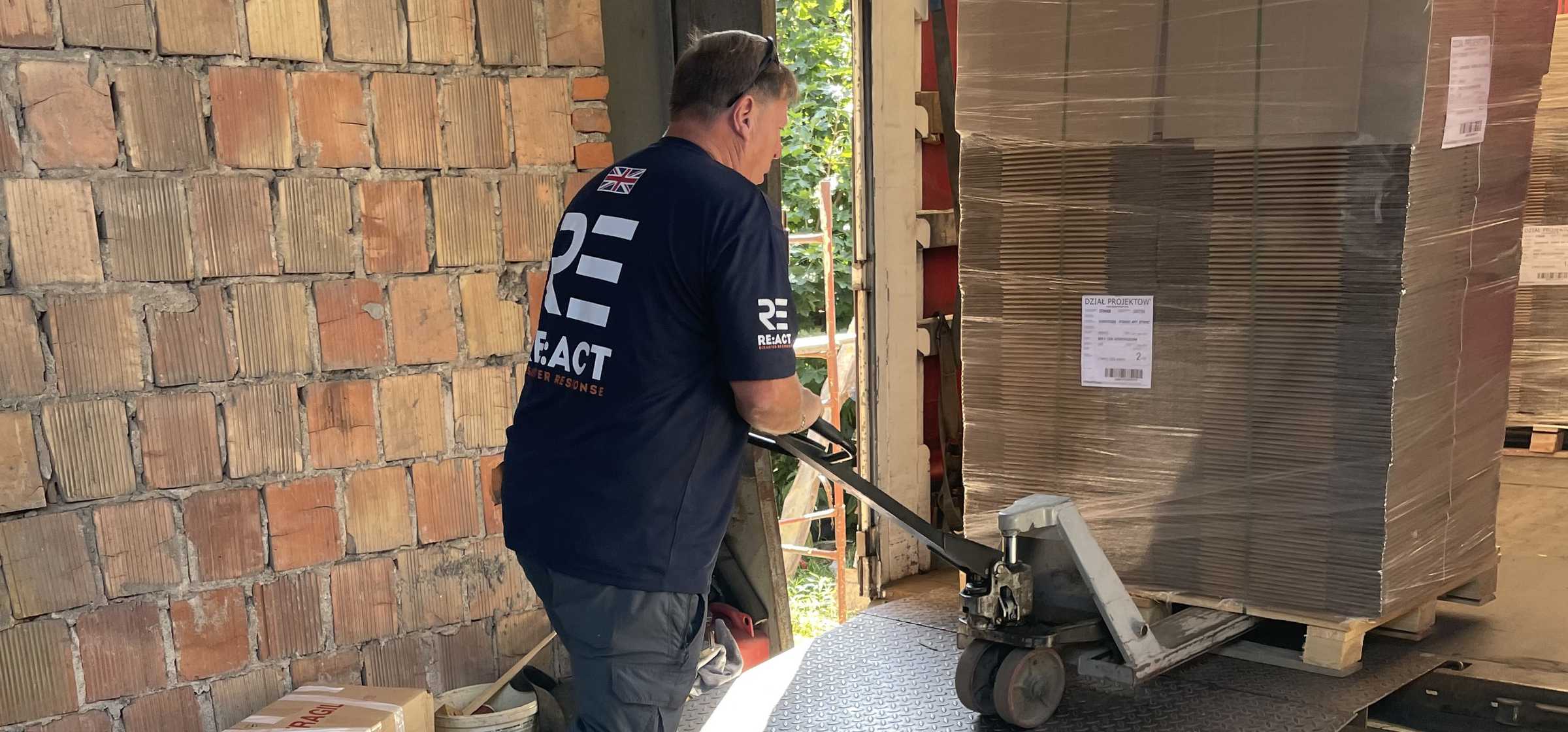
International Operations Manager at RE:ACT, Paul Taylor commented on the food packs and RE:ACT’s humanitarian approach:
“The most important part of any humanitarian mission is the people in need. We base our approach on what we hear directly from those on the ground in the area of crisis to ensure we can respond most appropriately.”
Paul continued:
“These humanitarian endeavours work best when they are community led by partners such as the Ukrainian Education Platform (UEP), as they can speak directly to those affected to understand the need and understand the environment and complexities. We very much support and empower them to help those in need.”
With production and distribution established and running successfully, RE:ACT volunteers have returned to the UK but we continue to provide vital funding for the work, and to support UEP as they oversee the production and distribution of the food packs.
To allow us to continue supporting these Ukrainian families with essential food supplies, please consider donating £30. This funds one pack, which can feed a family of four for one week. Anything you can donate makes a difference.
